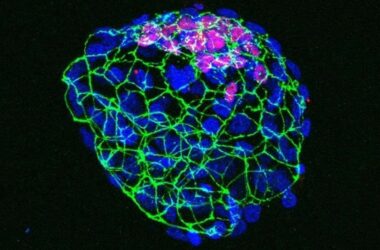An analysis of 1.3 million people’s genomes has revealed dozens of variations associated with migraines, which could lead to more effective treatments for the condition. It is estimated that up to 20% of adults worldwide experience migraines, which are recurrent and often debilitating headaches that are difficult to treat. Migraines can be accompanied by sensory symptoms such as flashing lights or tingling sensations, or they can occur without any preceding symptoms. The reason for the presence or absence of these sensory symptoms, known as migraine with or without aura respectively, is still unknown.
According to Debbie Hay from the University of Otago in New Zealand, while migraines are known to run in families, it has been challenging to identify a clear genetic basis for each type of migraine. However, a recent study led by Kári Stefánsson and his colleagues at deCODE genetics in Iceland has made significant progress in this area.
The researchers conducted a DNA analysis of 1.3 million individuals from Iceland, Denmark, the UK, the US, and Norway, approximately 80,000 of whom experienced migraines. They identified 44 gene variants associated with migraines, including 12 that were previously unknown. Notably, they found that a rare variant of the PRRT2 gene, which is involved in regulating signaling between neurons, is strongly associated with an increased risk of migraine with aura and epilepsy.
On the other hand, the study also revealed rare variants that suppress the function of the SCN11A and KCNK5 genes, which are involved in the transport of sodium and potassium between cells, respectively. These variants appear to provide protection against both types of migraines.
These findings have the potential to pave the way for new treatments that target the underlying causes of migraines. For instance, drugs could be developed to inhibit the production of the proteins encoded by the SCN11A and KCNK5 genes.
Kári Stefánsson believes that discoveries like this offer hope for migraine sufferers, as current treatments are not fully effective in preventing migraines. Additionally, Debbie Hay emphasizes the importance of understanding the mechanisms of migraines to tailor treatment for individual patients.
Overall, this study sheds light on the genetic factors influencing migraines and highlights potential avenues for the development of more targeted and effective treatments. It provides hope for individuals who suffer from migraines and are seeking better management options.








